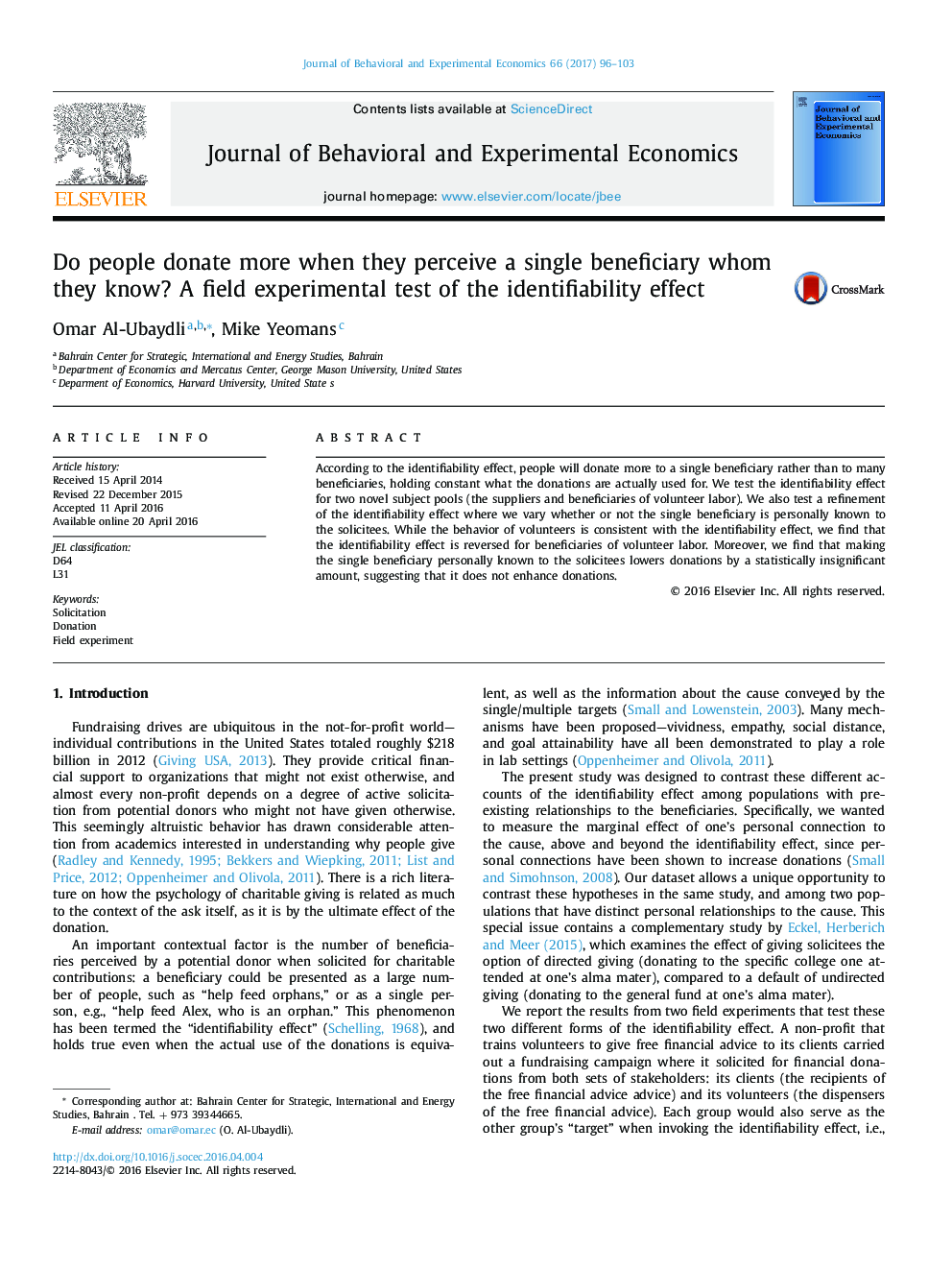| Article ID | Journal | Published Year | Pages | File Type |
|---|---|---|---|---|
| 5034205 | Journal of Behavioral and Experimental Economics | 2017 | 8 Pages |
â¢We test if donations are higher when there is one rather than many beneficiaries.â¢We test if knowing the beneficiary affects donations.â¢The solicitees are the suppliers and beneficiaries of volunteer labor.â¢The sign of estimated causal effects depends upon the solicitee pool.
According to the identifiability effect, people will donate more to a single beneficiary rather than to many beneficiaries, holding constant what the donations are actually used for. We test the identifiability effect for two novel subject pools (the suppliers and beneficiaries of volunteer labor). We also test a refinement of the identifiability effect where we vary whether or not the single beneficiary is personally known to the solicitees. While the behavior of volunteers is consistent with the identifiability effect, we find that the identifiability effect is reversed for beneficiaries of volunteer labor. Moreover, we find that making the single beneficiary personally known to the solicitees lowers donations by a statistically insignificant amount, suggesting that it does not enhance donations.
